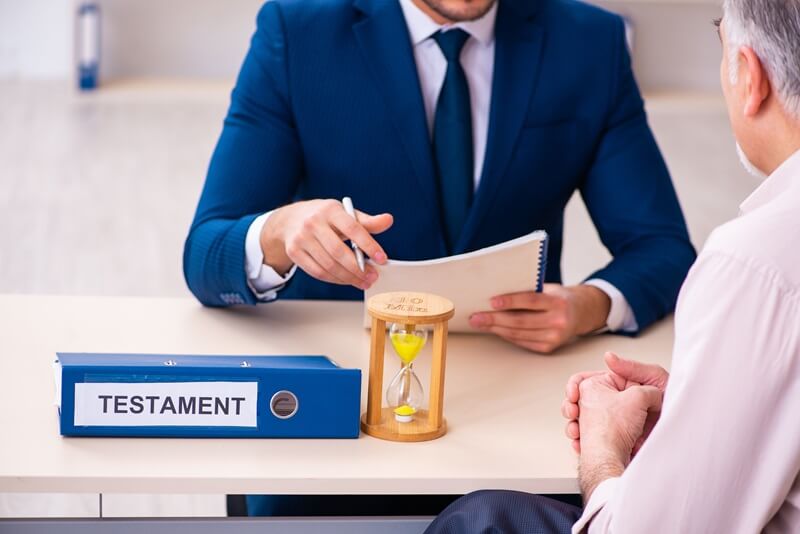Probate Lawyer Guides On Valuing Estate Assets In California
Probate Lawyer Guides On Valuing Estate Assets In California
Valuing estate assets can feel like climbing a steep mountain for executors and administrators navigating probate. However, with the support of a probate lawyer, the ascent becomes much more manageable. They can provide invaluable guidance, maintain compliance, and minimize the risk of disputes.
If you’re searching for a “probate lawyer near me,” you are in the right place. This article explores how to accurately determine the value of assets and why it is significant during probate. Additionally, it highlights how professional support can simplify the process and protect the interests of all parties involved.

What Is A Probate Inventory?
Probate is the legal process of settling a deceased person’s estate. It involves distributing assets, paying debts, and following the decedent’s wishes. One essential part of the process is creating a probate inventory. It lists all assets, obligations, and liabilities of the estate.
This inventory is essential for personal representatives, as it ensures fairness and transparency in the distribution. Moreover, a detailed list avoids disputes among heirs, helping executors to fulfill their duties effectively. However, there are nuances, and executors must thoroughly understand this list to fully utilize it.
Legal Requirements
Executors and administrators must adhere to specific rules and laws when filing an inventory of property. The inventory must be filed with the probate court within four months from the appointment date in California. This appointment typically occurs during the initial probate hearing, where the court officially recognizes the personal representatives.
The list must detail all assets, debts, and liabilities. It encompasses real estate, personal property, bank accounts, and investments. Further, executors ensure that all valuations are reasonable and justifiable. Inaccuracies in the inventory can lead to delays and potential legal complications.
Additionally, California law requires that a notice of the inventory be sent to heirs or beneficiaries. It ensures transparency and keeps them informed about the estate’s assets. Failure to comply with these legal requirements can result in penalties or additional legal issues.
Types Of Assets To Include
The probate inventory should encompass assets to provide a complete estate picture. Each reflects accurate valuation and ensures proper distribution among beneficiaries. Executors must understand these to ensure all relevant items are included.
- Real Estate: This includes any decedent’s property, such as homes, land, or rental properties.
- Personal Belongings: Items such as jewelry, collectibles, vehicles, and household goods fall into this category.
- Bank Accounts: All financial accounts, including checking, savings, and certificates of deposit, must be listed.
- Investments: Stocks, mutual funds, bonds, and retirement accounts should also be included.
Executors must document each type to ensure nothing is noticed. This thoroughness aids in the proper distribution among heirs and helps avoid potential conflicts. Proper asset appraisal is necessary to establish fairness and transparency in the process.
How Do You Value Assets?
Valuing estate assets accurately leads to a successful probate process. Personal representatives have several methods at their disposal for this task. Understanding these strategies helps ensure proper distribution among heirs.
Understanding Market & Appraised Value
First, it’s necessary to distinguish between market value and appraised value. Market value reflects what buyers pay for an asset at a given time. Personal representatives can use recent comparable property sales or items to gauge market conditions and demand.
On the other hand, the appraised value is determined by a professional appraiser. This value is often necessary for more complex assets or real estate. Professional appraisals lend credibility to the inventory, mainly if disputes arise among heirs.
Conducting Market Research
Executors and administrators should conduct thorough market research to support their appraisals. It can involve checking online resources such as real estate listings, auction results, and sales data. Local probate attorneys can also guide them in finding reliable sources.
For real estate, it’s advisable to review comparable sales in the neighborhood. Additionally, personal property can be assessed by examining auction results or classified ads. Gathering this information will help establish a proper market value for the assets.
Documenting Asset Values
Keeping accurate records of each asset’s value is vital. Personal representatives should maintain all supporting documents, including receipts, appraisals, and photographs. This documentation sustains the inventory’s values. They can present a strong case in court by staying organized and systematic.
All these steps are necessary for the accurate valuation of assets. Each is necessary for a smooth distribution process. When executors and administrators take the time to value assets correctly, they reduce the likelihood of disputes among heirs.
How Crucial Accurate Valuation Is For Estate Distribution?
Accurate asset valuation is crucial in several areas during the probate process. It supports fairness and proper distribution. Understanding its significance ensures that the decedent’s wishes are honored while maintaining family harmony. Here are key areas where accurate appraisal plays a significant role:
Proper Distribution Among Heirs Or Beneficiaries
All heirs or beneficiaries receive their proper shares when assets are valued correctly. Inaccurate appraisals can lead to unequal distributions, causing tensions among family members. By maintaining fairness, Executors and administrators uphold the decedent’s wishes and help preserve family relationships.
Legal Implications
Incorrect valuations lead to serious legal complications. If heirs believe their shares are inaccurately represented, disputes can arise, prompting them to contest the distribution. This situation can escalate into probate litigation, which is costly and time-consuming.
Legal fees for a probate litigation attorney and court costs can quickly accumulate. These expenses can divert funds that should go to settling the estate. Furthermore, prolonged disputes can delay the distribution of assets. It adds emotional strain to family members during an already difficult time.
Final Accounting & Taxes
Accurate appraisals are also critical for closing the estate and handling tax obligations. Personal representatives need to provide accurate financial reports to the probate court. This ensures compliance with tax regulations and minimizes potential issues with the IRS.
Executors and administrators also need to calculate any estate taxes due based on the accurate valuation of assets. By providing precise figures, they can determine the tax liabilities that must be settled before distributing the estate to beneficiaries. An accurate assessment reduces the risk of underpayment or overpayment.
All these practices are necessary for a smooth process. However, navigating the intricacies of asset valuation can be challenging. Seeking the help of local probate attorneys can provide invaluable support. They can guide you through the legal requirements, assist with accurate appraisals, and ensure compliance with tax obligations.
Why Should You Hire A Probate Lawyer?
Understanding how lawyers can support executors and administrators is essential if you search for “probate attorneys near me.” These professionals bring valuable knowledge and experience to the process. They help ensure a smoother and more efficient experience. Here are the key benefits of hiring a probate lawyer.
Guidance On Asset Valuation
Probate lawyers possess extensive knowledge of the asset appraisal process. They help you accurately assess various estate assets, including real estate, personal belongings, and financial accounts. This guidance ensures compliance with legal standards and minimizes the risk of errors.
Lawyers offer tailored advice on appropriate valuation methods. It can include using comparable sales for real estate or determining market values for collectibles. Their support helps avoid pitfalls and ensures a more transparent distribution process.
Access To Professional Appraisers
A probate lawyer can connect you with qualified appraisers experienced in valuing specific assets. These professionals are essential for accurately assessing real estate, collectibles, or businesses. Their support maintains transparency in the probate process. Further, it reinforces the integrity of the estate settlement.
Documentation & Evidence For Valuations
Probate lawyers assist in organizing and maintaining proper documentation for asset valuations. They ensure that each asset is backed by supporting evidence, such as appraisals, receipts, or photographs. This documentation is essential for court approval and helps establish the legitimacy.
By overseeing the paperwork, they ensure that all forms are filed accurately and submitted on time. This attention to detail minimizes the risk of disputes among heirs and prevents delays in the probate process. Overall, proper documentation gives heirs confidence in the distribution process.
The assistance of a local probate attorney can ease the burdens associated with the process. Executors and administrators can focus on honoring the decedent’s wishes while handling the estate properly.
So, if statements like “wills and probate attorneys near me” and “trust and estate attorney near me” top your Google search, you’re on the right track. However, you must consider their experience, track record, and communication style to ensure you receive the proper guidance throughout the probate process.
How Can San Diego Probate Attorneys Support You?

At San Diego Probate Attorneys, we offer various services to assist personal representatives throughout the probate process. Our experience in inventory and asset appraisal can make a considerable difference. Further, our attorneys provide guidance on how to create a comprehensive probate inventory.
We help identify the types of assets to include and ensure legal requirements are met. This assistance is invaluable for executors who may feel overwhelmed by the process. Furthermore, we assist in organizing necessary documentation. This meticulous approach helps support valuations and facilitates smoother court proceedings.
Overall, we are reliable partners for executors and administrators. Our commitment to helping clients navigate the probate process can lead to a more efficient resolution of estate matters. Contact us today to learn how we can assist you in achieving a seamless probate experience.
Summary
Accurate asset appraisal is vital for executors and administrators during probate. It ensures fairness in distribution and minimizes legal complications. Qualified lawyers for wills help navigate complex valuation processes and support compliance with legal requirements. Additionally, they safeguard the interests of all parties involved.
Utilizing the experience of probate attorneys can streamline this intricate journey, making it more manageable and less stressful. If you’re seeking assistance in this area, San Diego Probate Attorneys are here to provide the support you need.








